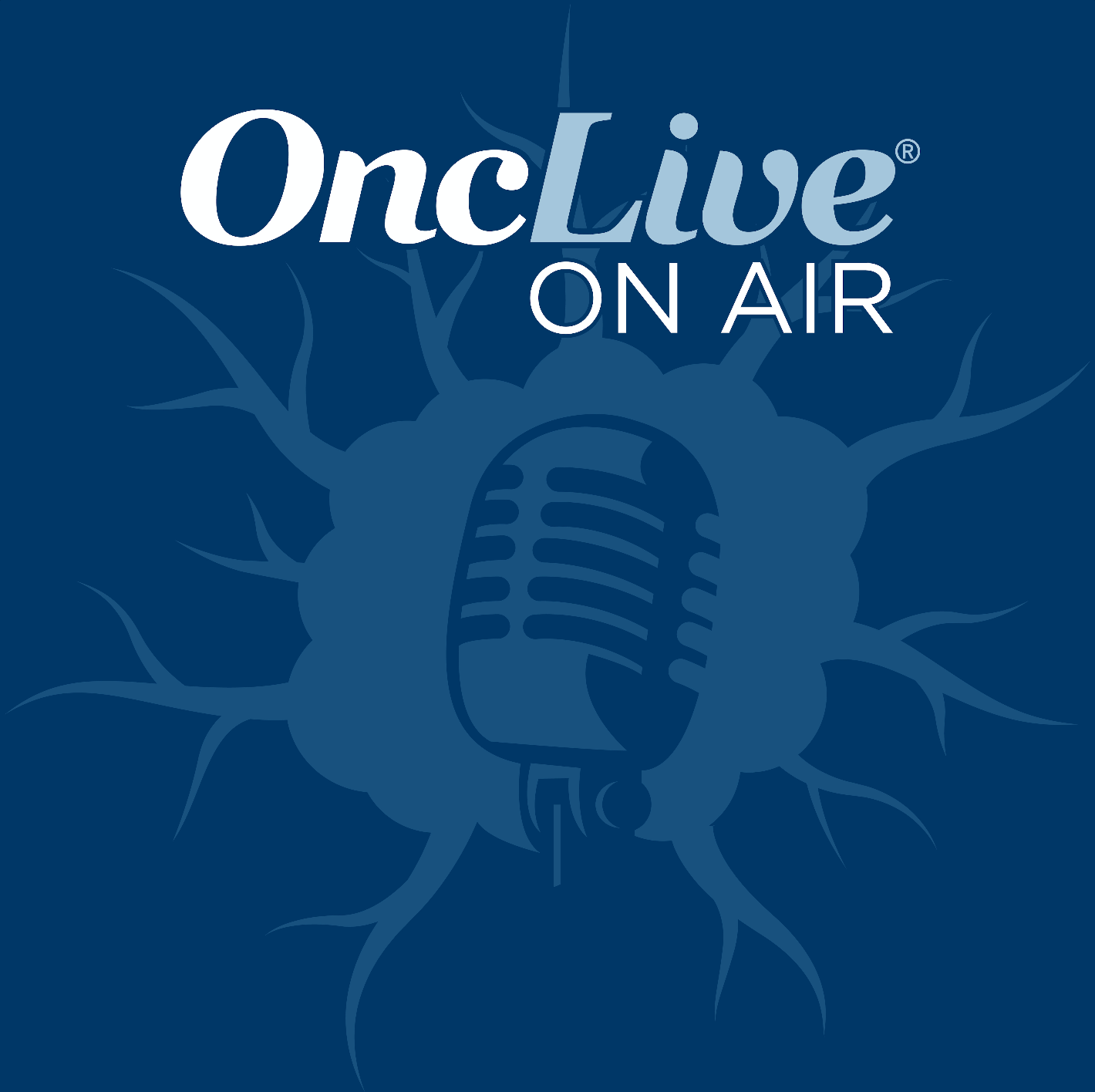Commentary
Article
A Medical Oncologist’s Insights on Cannabis Use in the Care of Patients With Hematologic Malignancies
Author(s):
Lindsay Wilde, MD, explains when cannabis may be appropriate and how she’s seen the agent affect quality of life for her patients.
A medical oncologist discusses
the use of cannabis | adobe.stock

When examining ways to mitigate adverse effects (AEs) associated with cancer treatment, patients with hematologic malignancies face additional challenges as they cannot take nonsteroidal anti-inflammatory drugs. Therefore, cannabis may serve as a suitable option for managing pain, according to Lindsay Wilde, MD, who noted that use of the complimentary therapy has risen, and the expectant reclassification of marijuana from a Schedule I to a Schedule III drug may open the door allowing for more research around its use.1
“It’s interesting—I practice in Pennsylvania which is a state where medical marijuana is legal. Throughout my practice, I’ve seen a consistent rise in patients asking to be referred for medical cannabis and I think that’s only going to continue. I’m a leukemia specialist and in my area we’re limited in a lot of the medications that we can use for common AEs, particularly for pain,” Wilde explained in an interview with OncLive®.
“Our patients are unable to use Tylenol or nonsteroidal anti-inflammatory drugs of any kind because of the risk of masking a fever or bleeding [as] they’re thrombocytopenic, so we don’t have a lot of [agents] to use for things like cancer-associated pain,” Wilde, who is an associate professor in the Acute Leukemia Program and program director of the Hematology/Oncology Fellowship Program at Sidney Kimmel Cancer Center at Thomas Jefferson University, added. “It’s an area where there’s not clear research about the benefit of medical cannabis; but if we have another tool that’s safer and doesn’t affect things such as fever and platelet count in the way that other pain medications do, it [would be] another tool that we’ll be able to use to manage treatment and disease-related symptoms.”
The American Cancer Society noted that more effective therapies are needed for patients with cancer who are experiencing AEs because of treatment, but the Society supports more research on cannabinoids. They added that federal officials should examine the options that comply with federal law to allow for more scientific studies on cannabis, and the American Cancer Society Cancer Action Network notes that due to the need for more research on cannabis, they have not taken a position on the legalization of it for medical use.2 However, the US Department of Health and Human Services recently issued a recommendation to the FDA that cannabis be reclassified from a Schedule I to a Schedule III drug under the Controlled Substances Act.1
In the interview, Wilde detailed when cannabis may be appropriate and how she’s seen the agent affect quality of life (QOL) for her patients. Wilde’s colleague Brooke Worster, MD, MS, FACP, chief medical officer at EO Care, also provided insights on medical cannabis in an additional interview.
OncLive: What might the DEA’s reclassification of cannabis from a Schedule I drug to a Schedule III drug mean for medical oncologists?
Wilde: In the short term, we may not feel a change, but there are long-term and far-reaching implications with this, particularly regarding the effect on the ability to do more research about medical cannabis. There is so much that we don’t know and doing research with a Schedule I substance is extremely challenging; reclassifying will open the possibility for more research to be done in a more expeditious way.
There’s also a big impact on de-stigmatizing the use of medical cannabis with patients and providers because there is still a lot of judgment and long-standing stigma about cannabis that stems from the way it has always been classified. Those are two areas where we as medical oncologists will ultimately see a change.
Are there specific AEs that a patient with a hematologic malignancy may have that would lead you to prescribe medical cannabis?
Managing nausea and vomiting is the place where most people think about using medical cannabis. [Nausea and vomiting] is a problem, particularly for our patients who get more traditional high-dose chemotherapies or [treatments] such as stem cell transplant where they get high-dose chemotherapy. We certainly find it useful for nausea and vomiting; we also use it as an appetite stimulant and sometimes for mood although there’s limited research in a lot of these areas.
There are guidelines that we sort of follow from the American Society of Clinical Oncology about medical cannabis use, but the guidelines highlight the need for more research about the true effects on treatment-related symptoms.
How do you educate fellows at your institution on the role of cannabis in care?
We have a very active supportive medicine program at Jefferson Health and that’s where our medical cannabis prescribing is housed. We have a partnership with supportive medicine, they’re part of our department, and they do a longitudinal curriculum with our fellows about all the services that they provide including medical cannabis. We teach the fellows in a structured way about the known risks and benefits [as well as] the legal hurdles you have to clear based on what state you live in.
I practice in Pennsylvania, but we’re in Philadelphia which is very close to New Jersey and Delaware, so I take care of patients from 3 states all of which have different laws regarding the use of medical cannabis. I have to know exactly what’s legal depending on where my patient lives and we teach the fellows all of these things so that when they go out into practice, not only do they understand sort of the legal and political climate around medical cannabis, but they also [understand] the known risks and benefits.
How have you seen cannabis affect QOL for patients with cancer?
We’ve seen it impact QOL and as with a lot of medications, it’s variable. There are some patients for whom it is highly effective and there are some patients where it’s less so [as] they don’t necessarily like how it makes them feel or [because] it takes time for us to find the actual formulation that works best for their symptoms. But for patients, particularly those who struggle with a lot of nausea-related symptoms, I have seen it be beneficial and help them continue treatment that they might otherwise have had to discontinue because the AEs were unmanageable.
What should be known about the safety of medical cannabis?
There’s so much that’s unknown. I do think anecdotally in my practice that it is safe and the reclassification to Schedule III reflects the safety and the utility of medical cannabis. That being said, there are a lot of questions that still exist, particularly about potential interactions with other medications that we use and with chemotherapy itself. Then there are lingering questions about whether cannabis could have a positive disease-modifying effect—maybe it’s an actual anti-cancer agent in and of itself or on the flip side maybe it’s not. These are all areas where there’s little known. Making it easier to do medical cannabis research is an important [part of understanding] what the future will look like.
How do you anticipate medical cannabis impacting supportive/integrative therapies for patients with hematologic malignancies?
I hope that access becomes easier for patients and that we are better able to select patients who will benefit the most from using it. I view medical cannabis as a medication and like any other medication that I prescribe, I want to reach for the right dose for the right symptom for the right patient at the right time. We still have a long way to go in figuring that out, but research will help us get there.
Ultimately, medical cannabis is here to stay, and patients are advocating for its use more because they’re benefiting from it. Therefore, we need to have a more consistent and focused way to prescribe it once it’s more widely available.
Is there any ongoing research that you’re involved with that you’d like to highlight?
I’m not a medical cannabis researcher although in our leukemia group we previously tried to get a medical cannabis project off the ground in collaboration with supportive medicine and there were legal hurdles that we just couldn’t cross. It highlighted the fact that this is still a politicized topic and that navigating the legalities of a Schedule I drug is challenging.
I do lots of other research—I have an interest in home-based or mobile health-supported care and in developing home-based blood transfusions for patients with hematologic malignancies. I’m also a clinical trial researcher. Research is top of mind for me always because this is how we make treatments better, safer, and more effective for patients.
References
- Kessler CD, Bleifer CB, Babin R, Daly T. Cannabis in 2024: HHS rescheduling recommendation and SAFER banking. Akin. February 23, 2024. Accessed March 27, 2024. https://www.akingump.com/en/insights/alerts/cannabis-in-2024-hhs-rescheduling-recommendation-and-safer-banking#:~:text=Overview,Controlled%20Substances%20Act%20(CSA)
- American Cancer Society. Marijuana and cancer. Accessed March 27, 2024. https://www.cancer.org/cancer/managing-cancer/treatment-types/complementary-and-integrative-medicine/marijuana-and-cancer.html









